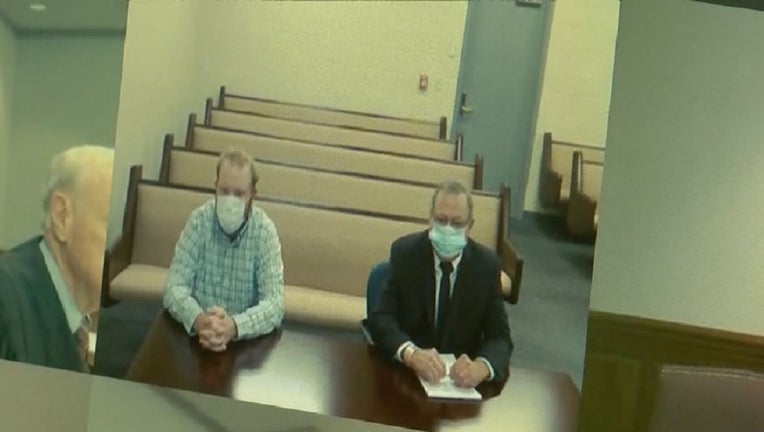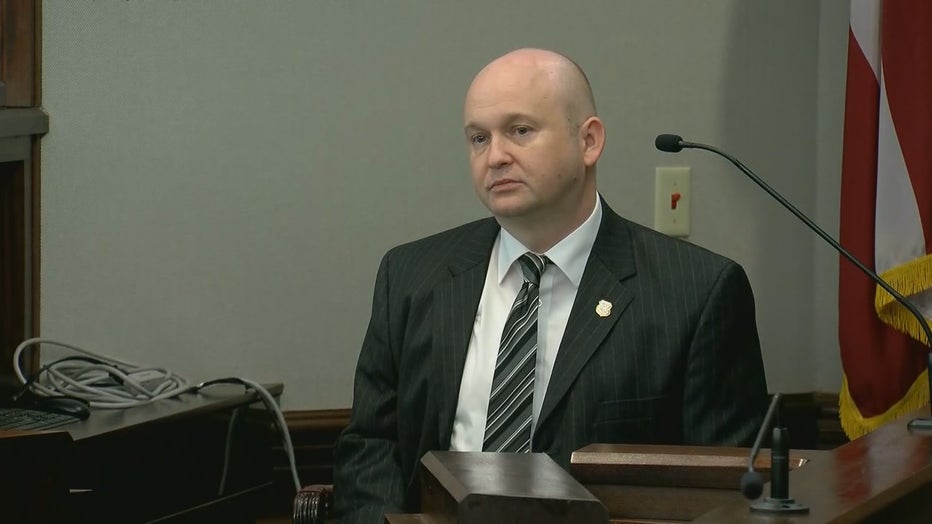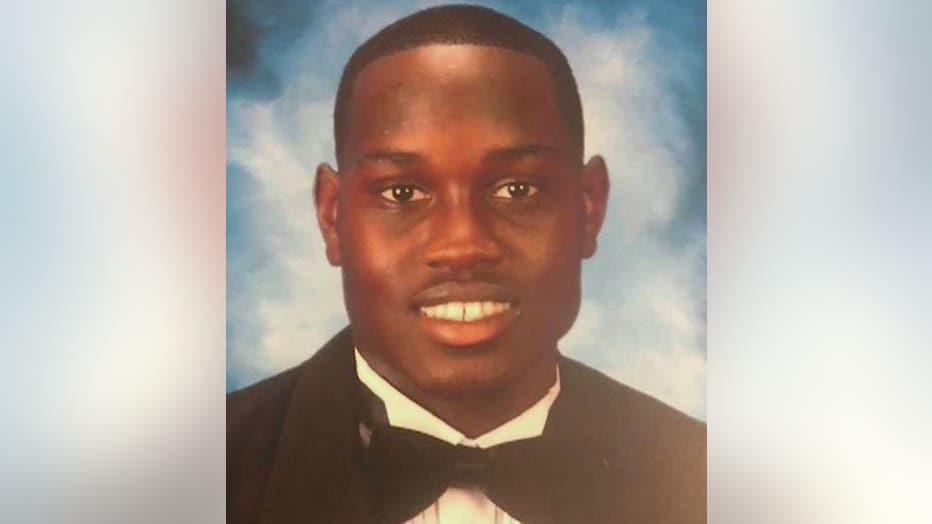Judge: Enough evidence to try 3 men for murder in Ahmaud Arbery case

Greg and Travis McMichael sit next to each other with masks participating remotely in a probable cause hearing on June 4, 2020. (FOX 5)
BRUNSWICK, Ga. - A judge ruled there was enough evidence to try three suspects on murder charges in the death of Ahmaud Arbery, who was shot while jogging on a Glynn County street. Magistrate Court Judge Wallace Harrell made the ruling after a day filled with testimony and evidence presented probable cause hearing for suspects Greg and Travis McMichael and William "Roddie" Bryan, allowing the case to proceed.
The defendants participated in the hearing Thursday remotely and were seen sitting next to each wearing masks while their lawyers questioned witnesses in open court.
A state investigator alleged Thursday that a white man was heard saying a racial slur as he stood over Ahmaud Arbery's body, moments after killing him with three shots from a pump-action shotgun.

Judge rules there was enough evidence to try three suspects on murder charges in the death of Ahmaud Arbery
A GBI official said the suspects cornered Arbery with their pickup trucks
The lead Georgia Bureau of Investigation agent in the case testified that Travis and Greg McMichael and a third man in another pickup, William "Roddie" Bryan, repeatedly used their trucks to chase down and box in Arbery, who repeatedly reversed directions and even jumped into a ditch in a desperate struggle to escape.
Travis McMichael then got out of his truck and confronted Arbery. He told police he shot him in self-defense after Arbery refused his order to get on the ground, Special Agent Richard Dial said. A close examination of the video of the shooting shows the first shot was to Arbery's chest, the second was to his hand, and the third was to his chest before he collapsed in the road, Dial said.

Special Agent Richard Dial on the stand during a probable cause hearing in the Ahmaud Arbery murder case on June 4, 2020. (FOX 5)
The driver of the second pickup truck, William "Roddie" Bryan, who recorded that video, said he heard the gunman say a racist epithet as he stood over Arbery's body before police arrived.
Special prosecutor Jesse Evans said Arbery "was chased, hunted down and ultimately executed."
"I don't think it was self-defense by Mr. McMichael. I think it was self-defense by Mr. Arbery," Dial said later under defense questioning. "When he couldn't get away, he chose to fight."
The evidence presented to support murder charges against the McMichaels and Bryan challenges the self-defense claim. Dial also described evidence that questions the idea that the three men were legitimately carrying out a citizens' arrest of a suspected burglar. He testified that Greg McMichaels told police that "he didn't know if Mr. Arbery had stolen anything or not, but he had a gut feeling" that Arbery had committed prior break-ins in the neighborhood.

Enough evidence in Arbery case to proceed
A judge says there is enough evidence to proceed in the Ahmaud Arbery murder case
Thursday's testimony also could factor into a federal investigation into whether hate crime charges are warranted.
Dial testified that investigators found a Confederate symbol in Travis' McMichael's truck and several more racial slurs in messages on his phone. The U.S. Department of Justice said on May 11 that it is "assessing all the evidence to determine whether federal hate crime charges are appropriate."
Georgia is one of the few states that don't have a hate crime law.
LEARN MORE ABOUT THE AHMAUD ARBERY SHOOTING
The deadly shooting happened on February 23 as Arbery, 25, jogged through a predominately white neighborhood along Satilla Drive near Holmes Drive in Brunswick.
McMichael, 64, who is a former police officer and DA investigator, and his son Travis, 34, were arrested two days after cellphone video of the shooting leaked online and stirred a national outcry. Both were charged with felony murder.
The neighbor who filmed the video, 50-year-old William “Roddie” Bryan, was also arrested and charged with felony murder and illegally using a vehicle to try to confine and detain Arbery.

William Roderick Bryan is now facing charges in the death of Ahmaud Arbery (Glynn County Detention Center).
Georgia law defines felony murder as a killing caused by the commission of an underlying felony. It does not require intent to kill. The minimum penalty is life in prison with a chance of parole.
Largely peaceful protests following the deaths of George Floyd in Minneapolis, Breonna Taylor in Louisville, Kentucky, and Arbery have led to outbreaks of violence in many larger cities, including Atlanta. Georgia Gov. Brian Kemp promised a “strong state law enforcement presence” in the Brunswick area Thursday to coincide with the court hearing.
Defense attorneys requested the hearing to make prosecutors show whether they have probable cause to charge the men with murder.
Greg McMichael told police after the shooting in February that he suspected Arbery of committing break-ins in the neighborhood. He said Arbery attacked his son before being shot.
Arbery’s family has said he was merely out jogging. The former high school football player ran to stay in shape and lived less than 2 miles (3.2 kilometers) from the subdivision where he was killed. His mother said he planned to start technical college in the fall to become an electrician.

Ahmaud Arbery (Photo provided by family members)
Lawyers for all three have said the case is not all cut and dry. They asked the public to reserve judgment until all the evidence is presented in court.
All three defendants remain jailed in Glynn County. A different judge will have to decide whether to allow them to go free on bond.
The Associated Press contributed to this report.

